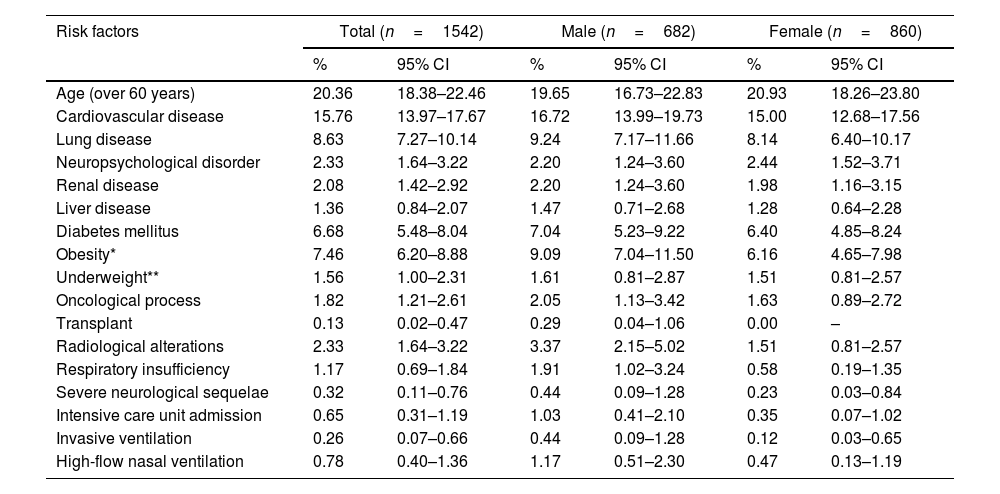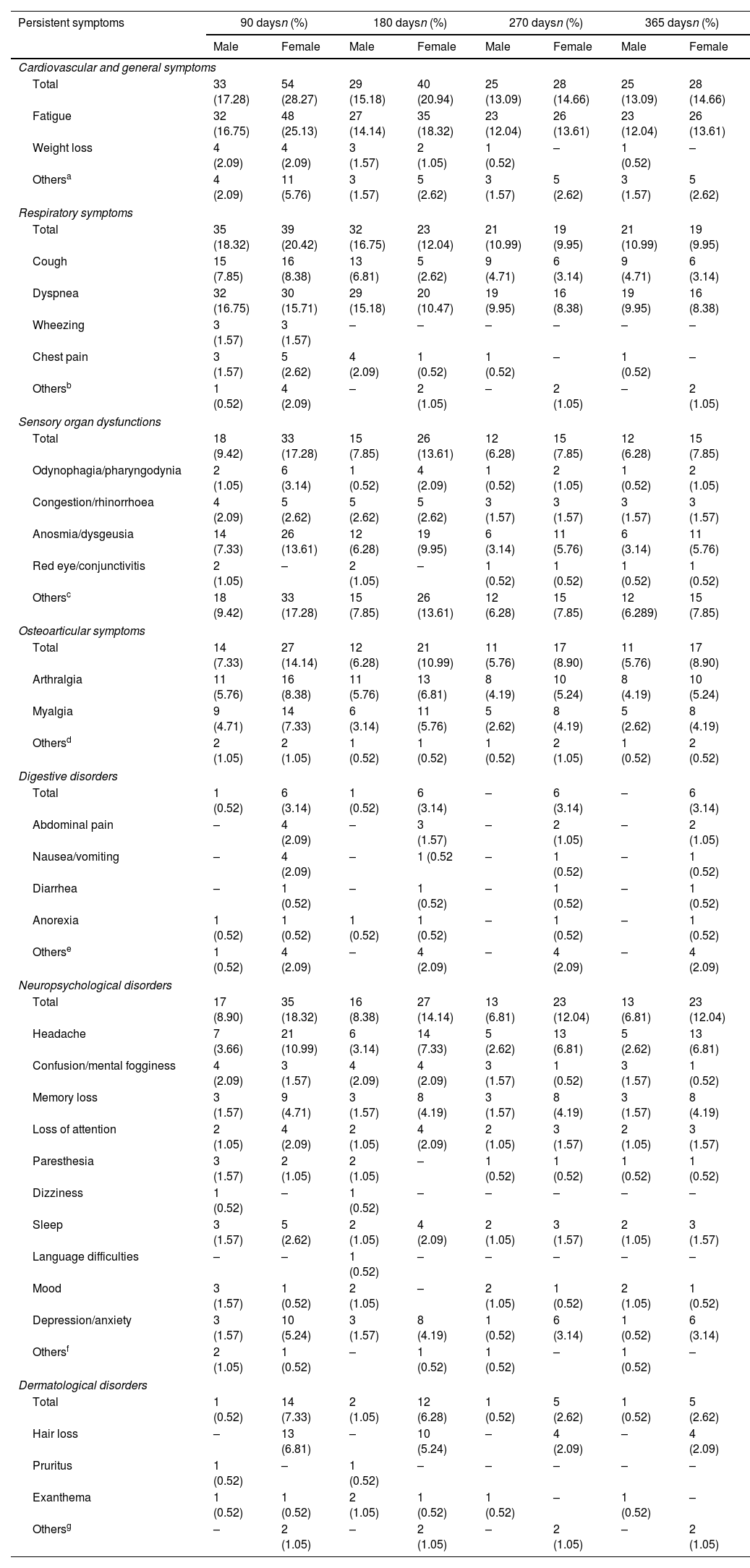This study aimed to characterize the prevalence as well as clinical and epidemiological features of persistent symptoms after acute COVID-19, focusing on gender-specific differences in a primary care setting.
MethodsA total of 1542 individuals with confirmed SARS-CoV-2 infection were enrolled. The study population comprised 55.77% females (mean age: 45.04 years). Risk factors for persistent COVID-19 were analyzed, revealing disparities between men and women. Symptom clusters and their prevalence were assessed over time, along with functional status using the post-COVID-19 functional status scale.
ResultsThe prevalence of persistent COVID-19 was 12.38%, with females exhibiting a 1.5 times higher risk. Females displayed a higher number of visits and persistent symptoms at 90 days, decreasing after one year. Symptom clusters varied between genders, with females experiencing more dermatological issues. Functional status analysis revealed that females had a better pre-infection status, similar status to males at 90 days, and improved status at 180-, 270-, and 365-days post-infection. Logistic regression analysis showed significant associations between persistence, gender, hospitalization, radiological abnormalities, age, and immunosuppression.
ConclusionThis study provides insights into the prevalence and clinical characteristics of persistent COVID-19 in a primary care population. Females exhibited a higher risk of persistent symptoms and displayed distinct patterns in symptom clusters and functional status compared to males. These findings contribute to a better understanding of the long-term effects of COVID-19 and highlight the importance of gender-specific considerations in post-acute care.
Determinar la prevalencia e identificar las características clínico-epidemiológicas, según perspectiva de género, en pacientes con síntomas persistentes de COVID-19 atendidos en atención primaria.
MétodosSe reclutó un total de 1542 individuos con infección SARS-CoV-2 confirmada. El 55,77% de la población estudiada eran mujeres (edad media: 45,04 años). Se analizaron los factores de riesgo de COVID-19 persistente, evidenciando diferencias entre hombres y mujeres. Se evaluaron los grupos de síntomas y su prevalencia a lo largo del tiempo, junto con el estado funcional mediante la escala de estado funcional pos-COVID-19.
ResultadosLa prevalencia de COVID-19 persistente fue 12,38%, presentando un riesgo 1,5 veces superior en la mujer. Las mujeres presentaban un mayor número de visitas y síntomas persistentes a los 90 días, que disminuían al cabo de un año. Los grupos de síntomas variaron entre géneros, las mujeres experimentaron más problemas dermatológicos. El análisis del estado funcional reveló que las mujeres tenían un mejor estado antes de la infección, un estado similar al de los hombres a los 90 días y un mejor estado a los 180, 270 y 365 días después de la infección. El análisis de regresión logística mostró asociaciones significativas entre persistencia, sexo, hospitalización, anomalías radiológicas, edad e inmunosupresión.
ConclusiónEste estudio proporciona información sobre la prevalencia y las características clínicas de la COVID-19 persistente en una población de atención primaria. Las mujeres presentaron un mayor riesgo de síntomas persistentes y mostraron patrones distintos en los grupos de síntomas y el estado funcional en comparación con los hombres. Estos hallazgos contribuyen a una mejor comprensión de los efectos a largo plazo de la COVID-19 y destacan la importancia de las consideraciones específicas de género en la atención postaguda.
Article
Diríjase al área privada de socios de la web de la SEMERGEN, (https://www.semergen.es/index.php?seccion=biblioteca&subSeccion=revistaSEMERGEN ) y autentifíquese.












